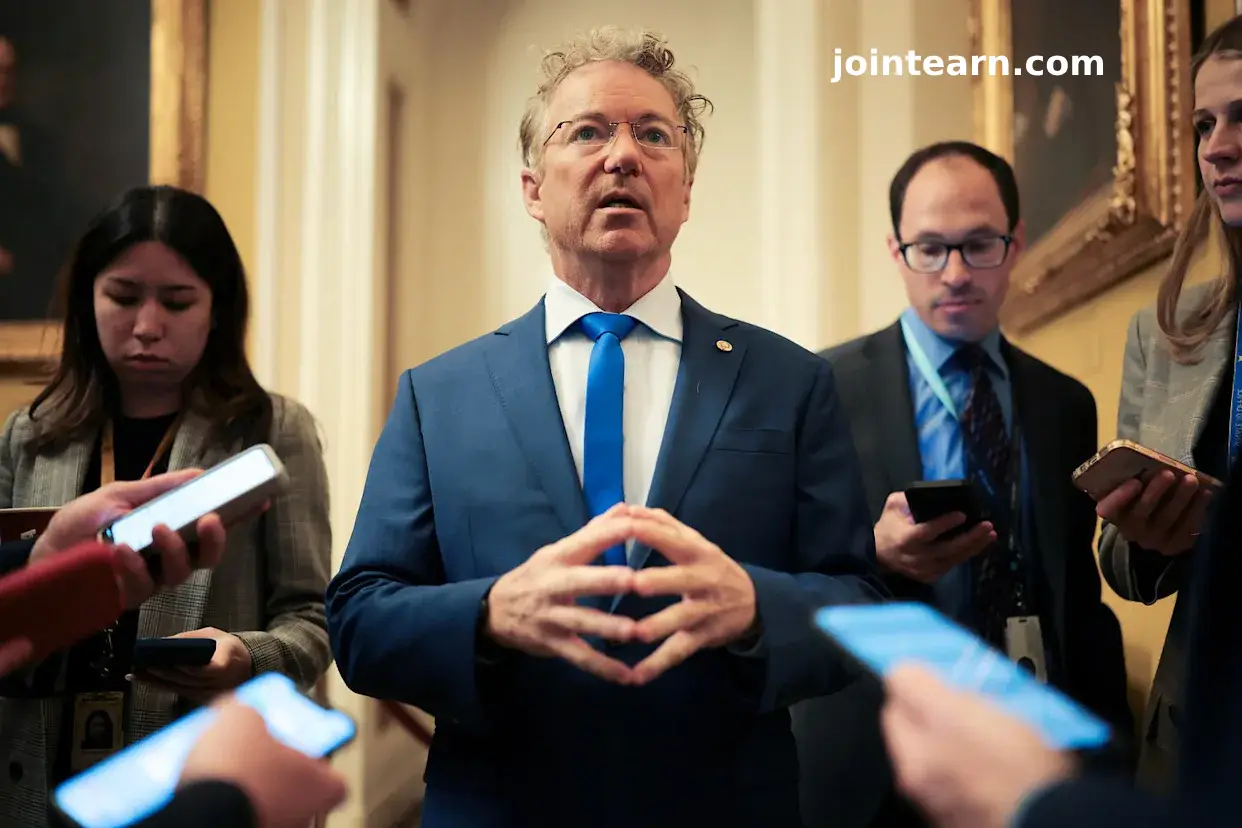A bipartisan effort to reverse the global tariffs imposed by former President Donald Trump faltered in the GOP-controlled Senate on Wednesday. The vote ended in a 49-49 tie, with three Republican Senators—Rand Paul of Kentucky, Susan Collins of Maine, and Lisa Murkowski of Alaska—joining all Democrats in support of the resolution aimed at terminating the national emergency Trump declared to enforce his sweeping tariffs on numerous countries.
Despite backing from both Senate Majority Leader Mitch McConnell (R-Ky.) and Senator Sheldon Whitehouse (D-R.I.), neither was present for the vote. The resolution needed a simple majority to pass, but failed due to the tie. Following the failed vote, the Senate moved to table a motion from Democrats to hold another vote next week on the tariffs issue. Vice President JD Vance cast the tiebreaking vote, resulting in a 50-49 outcome to advance the motion to table.
Even if the resolution had passed, it would likely face challenges in the GOP-led House of Representatives, where Republicans recently voted to impose additional hurdles for lawmakers seeking to address Trump’s tariff authority. Additionally, the White House signaled that President Trump would veto the resolution if it made it to his desk.
Earlier in April, the Senate passed a similar but narrower resolution aimed at blocking U.S. tariffs on Canada, with the same group of Republicans siding with Democrats in opposition to Trump’s tariff policy. This marked one of the rare instances where GOP Senators publicly rebuked Trump’s trade agenda.
On the same day as the Senate vote, the U.S. Commerce Department reported a 0.3% contraction in the U.S. economy for the first quarter of the year, a figure that the Trump administration attempted to downplay. In response, Trump urged patience, addressing the public on Truth Social.
Despite the economic contraction, Trump administration officials have continued to claim progress in trade negotiations with countries affected by U.S. tariffs. However, no specific details about these negotiations have been released. U.S. Trade Representative Jamieson Greer expressed optimism that agreements could be reached with several countries in the coming weeks.
Senate GOP Whip John Barrasso (R-Wyo.) criticized the vote as a waste of time, asserting that the effort would not lead to any significant legislative change. “They know it’s not going to go anywhere,” Barrasso said. “All they’re trying to do is slow down the process.”
In addition to the failed resolution, Senators Chuck Grassley (R-Iowa) and Maria Cantwell (D-Wash.) proposed a bill targeting Trump’s tariffs. This bill would not immediately repeal the tariffs but would instead set a 60-day expiration unless Congress votes to approve them. While some Senators, including Paul, viewed this bill as a compromise, others, like Senator Thom Tillis (R-N.C.), who faces a tough re-election campaign, dismissed it as a “political exercise” without real potential for legislative success.












